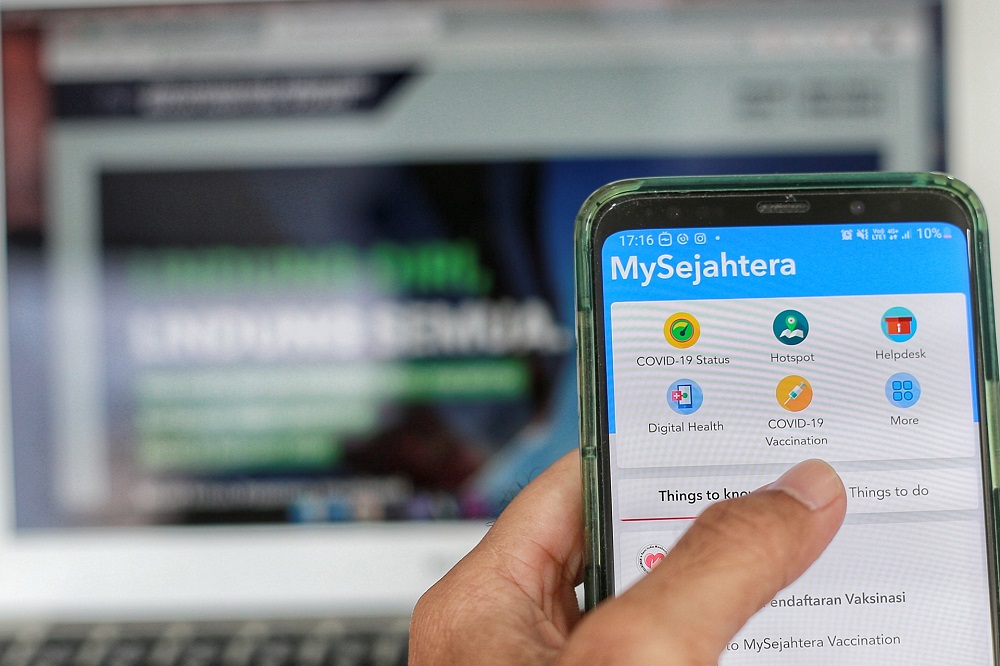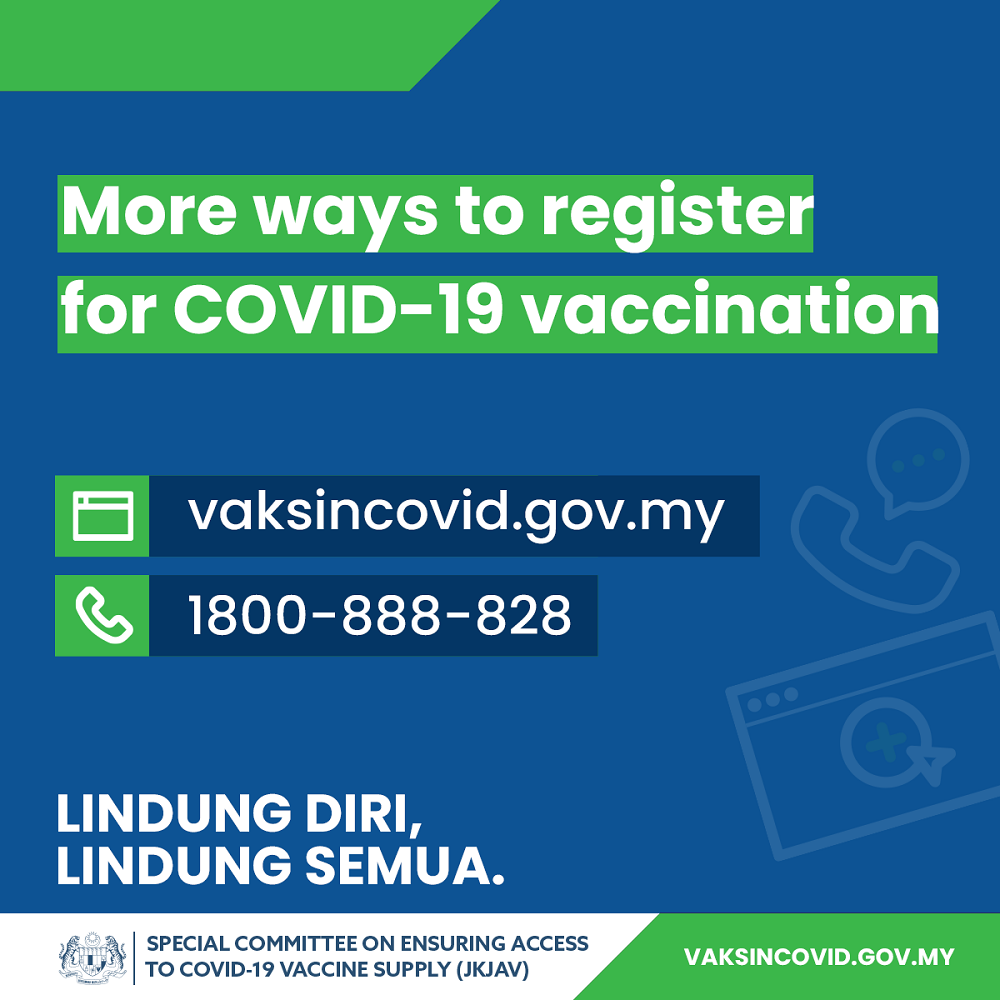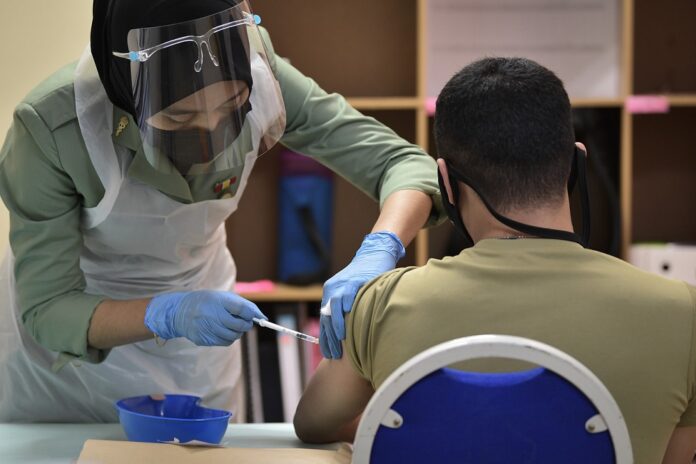
Subscribe to our Telegram channel for the latest updates on news you need to know.
KUALA LUMPUR, March 6 — It has been over a week since Malaysia started its National Covid-19 Immunisation Programme on February 24 with the prime minister being the first in the country to take the jab, and about two million people have voluntarily signed up to be vaccinated as of 3pm yesterday.
This represented about 8.6 per cent of Malaysia’s plan to have 23.6 million people vaccinated by February 2022. Also yesterday, a total of 99,616 people in Malaysia have already received their first dose of the vaccine.
The government’s target is to eventually have at least 80 per cent of the country’s 32 million-strong population, or in other words to have at least 25.6 million persons vaccinated.
It is early days still in the year-long Covid-19 vaccination plan for Malaysia, which comprises of three phases — targeted vaccination of 500,000 frontliners (February to April 2021), 9.4 million frontliners and high-risk groups such as senior citizens or those with chronic illnesses and persons with disabilities (April to August 2021), 13.7 million or more adults including foreigners and Malaysians (May 2021 to February 2022).
Could introducing an opt-out model where everyone eligible to be vaccinated will receive the Covid-19 vaccination unless they express their choice to opt out help speed up the rate of vaccination in Malaysia, as compared to the approach now where those who wish to be vaccinated have to register?
Malay Mail spoke to several health experts, with some cautioning against adopting this model without careful consideration.

Continue with opt-in
When contacted, health policies specialist Dr Khor Swee Kheng noted that the aim of Malaysia’s Covid-19 vaccination programme is to “vaccinate as many people as quickly as possible”.
He then listed the three types of policies that can be pursued for Covid-19 vaccination, but said the current approach of allowing Malaysians to choose to be vaccinated should be maintained for now.
“Leaving aside non-vaccine public health policies, vaccine supply constraints and vaccine confidence efforts, the government can deploy three distinct policy approaches with increasing levels of interventionism. These must be taken in sequence as they are mutually exclusive.
“The first approach is Educate and Encourage, which is what we are doing now and is consistent with every other country’s approach. This can be called an ‘opt-in’ approach, because citizens are deliberately opting in for the vaccine. We must maximise our education efforts,” he told Malay Mail.
Dr Khor said that it is only if the “opt-in” approach does not achieve vaccination of sufficient portions of the population that the two other types of vaccination policies can be considered, but cautioned that care should be taken when deciding whether to shift to such policies.
“If that fails to achieve adequate vaccination coverage rates, the Malaysian government can consider two other approaches, but this must be very carefully planned and communicated. There should be a high threshold for these two approaches.
“The next approach could be an Opt-Out approach. The ‘opt-out approach’ means that all citizens are signed up for the vaccine unless they deliberately opt out of it. If that fails, the final approach is mandatory vaccination, which requires all citizens to receive the vaccine unless they are clearly unable to receive it, like a previous severe allergy to a vaccine,” he said.
He said that Malaysia should continue and enhance its efforts to educate on and encourage vaccination for Covid-19.
“For the next three to six months at least, Malaysia should not deploy the opt-out and mandatory approaches. We have not optimised our Education and Encouragement efforts, and we must do better in this area.
“There are many ethical, legal and logistical hurdles to the opt-out and mandatory approaches, and both approaches must be handled with a lot of care as there are a lot of unintended consequences.
“Examples include how the government will sanction those who continue to refuse, whether our communication efforts can reach those who might not even be aware that they can opt-out, and how this can backfire by reducing vaccine confidence,” he said.

Enabling informed choices while countering misinformation
Aimst University’s associate professor and public health specialist Dr Saraswathi Bina Rai said the opt-out model should not be used for Covid-19 vaccination, due to the ethical issues that would arise.
While the aim is to achieve herd immunity in Malaysia through high levels of vaccination among the population, Dr Bina said achieving the public good is a collective effort, and that there is a need to balance the right of the individual against the public good.
She highlighted the need to instead provide education to address public concerns and fears caused by misinformation, and to also help Malaysians make an informed decision to receive Covid-19 vaccination.
“It’s nice to have an opt-out model, but there are individual rights as well. Many do not want to take vaccines due to religious reasons, some who want to live a natural life without vaccines or even blood transfusions etc. Some are afraid of what they read about side-effects and the safety of the vaccines. Unfortunately, a lot of infodemics,” she told Malay Mail.
Under the opt-out model which would mean all will be vaccinated unless they opt-out or do not give consent to be vaccinated for Covid-19, Dr Bina said there would be ethical issues if individuals do not make informed choices.
“So some who are not so literate would just take trusting the Government and not really looking to see if they are a suitable candidate, if they have any contraindications etc. This is ethically wrong,” she said.
“People should be able to read, understand, all the benefits and side-effects of the vaccine and make an informed choice to take the vaccine,” she explained.
This would be on top of ensuring that all who receive the Covid-19 vaccine are first screened to check for their suitability for vaccination.
“After all, not the whole population needs to be immunised. What we want is a certain level of immunity that is the critical vaccination level — the number at which it is sufficient to halt the spread of the virus — basically the herd immunity,” she said.
Dr Bina supported the government’s current approach of educating the public on Covid-19 vaccination to enable them to make informed choices, saying: “I think what the government is doing now is right.”
She however said that Covid-19 vaccination can be made mandatory for those wishing to travel out of Malaysia, noting: “That is acceptable, like that yellow fever vaccine that you need to go to yellow fever endemic countries. Now Covid-19 is a pandemic and if you want to travel overseas, that can be a requirement.”

Sign-ups will follow once vaccination numbers pick up
Consultant paediatrician Datuk Dr Amar Singh HSS said he did not have a firm opinion on either the opt-out or opt-in models, but generally favoured the current opt-in approach in Malaysia.
He said the key now is to get as many government and private healthcare staff to be vaccinated, followed by all frontliners such as the police, teachers, staff of supermarkets or coffee shops or shops with high usage.
Dr Amar said the next two groups to be considered after the frontliners are vaccinated are those who are elderly and at risk or with co-morbidities, as well as young working adults who he said are the drivers of the outbreak.
“So the issue is speed — get our daily vaccination ramped up,” he said while noting that this may be subject to vaccine supply and availability.
He said others would eventually follow suit: “Once you are vaccinating large numbers, others will opt-in.”
Dr Amar also suggested a backup list to be prepared at every vaccination site to deal with any possible situations of individuals not showing up for their vaccination appointment as scheduled, noting: “There will be people who want the vaccine and we can have them on a waiting list.”

When contacted, Malaysian Medical Association’s (MMA) president Professor Datuk Dr Subramaniam Muniandy said the opt-out model was possible if the MySejahtera app is used.
“Opt-out would be logistically easier if the Government has an up-to-date and easily accessible database — which they do. So basically the people who don’t want will have to register — via MySejahtera,” he said when providing a scenario of how an opt-out approach could be carried out.
“However, we are not sure how effective My Sejahtera is. The latest update did not really work properly for registration at first — only a couple of days ago could addresses be searched for. So the low registration may reflect problems with the app as well as true poor uptake,” he told Malay Mail.
Dr Amar and Dr Bina similarly highlighted to Malay Mail about the need for improvement to the MySejahtera app such as through formal reply notification or the display of clear information about the registration status of those who signed up for Covid-19 vaccination. Since their comments to Malay Mail, it is understood that the app has been updated to display the users’ registration status.
More information on the government’s Covid-19 vaccination programme can be found here on the Special Committee for Ensuring Access to Covid-19 Vaccine Supply’s (JKJAV) website (vaksincovid.gov.my) and on their social media accounts such as Twitter and Facebook, with minister Khairy Jamaluddin also seen sharing the latest information and responding to the public’s questions on his Twitter account.
Apart from the MySejahtera app where individuals can currently sign themselves up for the Covid-19 vaccination, the government will be making it easier to register, with four other alternative methods to be available for those without the app — including outreach programme for rural dwellers, JKJAV’s website said.
Two of the alternative methods went live yesterday (March 5), with sign-ups for Covid-19 vaccination now possible through the website vaksincovid.gov.my or through calling a hotline known as the National Covid-19 Registration Vaccination Line (1800-888-828).
On March 3, Khairy on Twitter had also confirmed that the MySejahtera app would have a new feature in two weeks’ time to enable users to register their dependents for the vaccination, and noted that registration counters at public hospitals and government clinics are being rolled out progressively.




